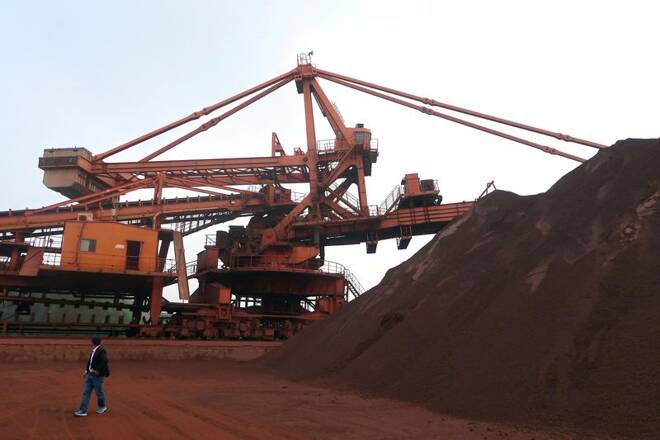Advertisement
Advertisement
China’s factory gate inflation slows further after cooling measures
By:
BEIJING (Reuters) - China's factory-gate inflation rose more slowly than expected in December as the government took steps to contain lofty raw material prices, official data showed on Wednesday.
BEIJING (Reuters) – China’s factory-gate prices rose more slowly than expected in December after government measures to contain high raw material prices, official data showed on Wednesday, leaving room for easing monetary policy.
Consumer price inflation also slowed last month as food prices fell, the National Bureau of Statistics (NBS) said in a statement.
The producer price index (PPI) climbed 10.3% from a year earlier, the data showed. Economists in a Reuters poll had expected the PPI index to gain 11.1% after a 12.9% rise in November.
Factory inflation has moderated in recent months from a 26-year high in October as Beijing intervened to stabilise high raw material prices and ease an energy power crunch.
“Factory gate inflation will probably trend down further over the coming months,” said Sheana Yue, China economist at Capital Economics, in a note.
“With coal supply improving and property construction slowing, we see further downside to the price of industrial metals and energy.”
China’s consumer price index (CPI) grew 1.5% year-on-year in December. Economists in a Reuters poll had expected a 1.8% uptick, after a 2.3% increase in November.
Food prices fell 1.2% year-on-year, with Yue pointing to a recovery in the supply of pork and vegetables after disruptions caused by bad weather in October and November.
The CPI rose 0.9% year-on-year in 2021, down from a 2.5% gain in 2020.
“Lower inflation opens room for the government to loosen monetary policies further. The probability of (an) interest rate cut is rising, in our view,” said Zhiwei Zhang, chief economist at Pinpoint Asset Management, in a note.
The world’s second-largest economy is facing a series of headwinds in 2022, including property woes, a slowing manufacturing sector and COVID-19 outbreaks as the world battles the Omicron coronavirus variant.
Chinese cities are already advising people to stay put for the Lunar New Year, a peak travel period, due to fresh coronavirus outbreaks in several regions.
China’s central bank has said it will keep monetary policy flexible in 2022 as it seeks to stabilise growth and lower financing costs for businesses amid growing economic headwinds.
(Reporting by Liangping Gao and Gabriel Crossley; Editing by Shri Navaratnam and Ana Nicolaci da Costa)
About the Author
Reuterscontributor
Reuters, the news and media division of Thomson Reuters, is the world’s largest international multimedia news provider reaching more than one billion people every day. Reuters provides trusted business, financial, national, and international news to professionals via Thomson Reuters desktops, the world's media organizations, and directly to consumers at Reuters.com and via Reuters TV. Learn more about Thomson Reuters products:
Advertisement
